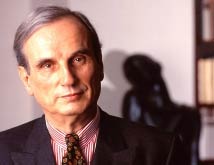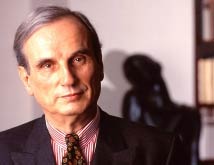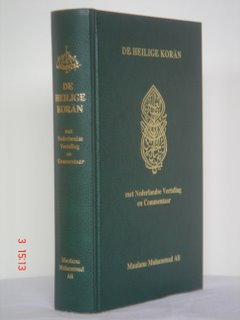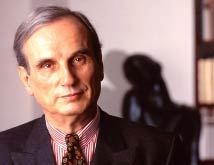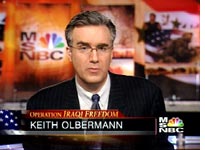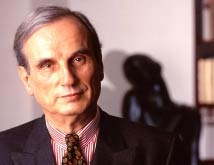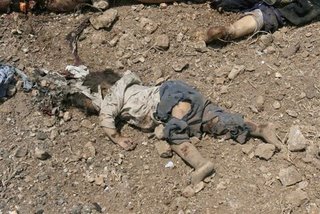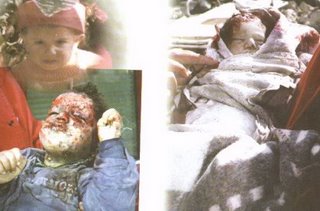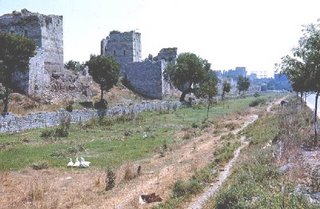An inquiry into human freedom: Individualism
reconsidered from Richard Moore.
Over the years, as I've pondered our problems as
a global society, and watched the dark storm
clouds rising, I've been searching for 'what we
can do' to save ourselves and the planet. Growing
up in the 1960s, I assumed that our glorious
'land of the free' had been hijacked by people
like Lyndon Johnson, Richard Nixon, and their
corporate sponsors. Like many others, I believed
we needed to 'restore' our democracies, to
'return' to the vision of the Founding Fathers.
But as I began studying history seriously, I
learned there never has been a golden age of
democracy, not in America and not anywhere in
recorded history. I found out that our revered
Founding Fathers were slave-owning aristocrats,
who made beautiful speeches about freedom and
democracy, but in the end gave their first
allegiance to the preservation their own private
fortunes. See, for example, "Toward an American
Revolution: Exposing the Constitution and other
Illusions", by Jerry Fresia:
http://cyberjournal.org/authors/fresia/The more I looked back through recorded history,
the more I realized there has never been any
golden age of civilization. Always there have
been ruling cliques, a relative few in privileged
positions, and a great many who live in varying
degrees of subjugation, exploitation, and
depravation. For the first few thousand years,
civilization was based on outright slavery (See:
Bible, ancient Egypt, Greece, Rome, China,...),
and slavery has never been fully eliminated to
this day. Recently we've been told that we live
in democracies (republics if you prefer), and we
are supposed to believe we are free because once
in a while we are permitted to choose which
elite-sponsored leader we prefer to follow.
As long as our societies are controlled by
privileged cliques, whether they sit on thrones
or in boardrooms, we are but subjects and pawns,
and our societies will be run for the benefit of
a few. This has been the ongoing saga of
civilization to this day. Only when we learn to
govern ourselves will our societies be run
sensibly for our benefit, and for the benefit of
our families and posterity. The time has come for
us to make a choice: either we learn to govern
ourselves, or else the dark clouds of resource
depletion will lead to global collapse and mass
die-offs. Our current elite rulers have made it
very clear that they intend to keep their
wasteful economic-growth machine operating
regardless of the consequences for the rest of
us. In the third world mass die-offs have already
begun, as some six million children die each year
from malnutrition, starvation, and preventable
diseases -- a Holocaust of neglect.
"We've lived so long under the spell of hierarchy-from
god-kings to feudal lords to party bosses-that only recently
have we awakened to see not only that 'regular' citizens
have the capacity for self-governance, but that without
their engagement our huge global crises cannot be addressed.
The changes needed for human society simply to survive, let
alone thrive, are so profound that the only way we will move
toward them is if we ourselves, regular citizens, feel
meaningful ownership of solutions through direct engagement.
Our problems are too big, interrelated, and pervasive to
yield to directives from on high."
-Frances Moore Lappé, Time for Progressives to Grow Up
How then can we learn to govern ourselves? I
suggest that this is a very difficult question,
because we have no experience in self governance,
no models of how to go about it. In every aspect
of our lives, we are accustomed to delegating
governance to one form of hierarchy or another.
Our cities are governed by city councils, our
workplaces are run by boards of directors, our
schools by school boards, even our 'grassroots
organizations' -- whether they be the the Sierra
Club or the National Rifle Association -- are
governed by small cliques. We know how to join an
organization, but we don't know how to govern one
ourselves -- we always delegate to some central
authority.
Learning to govern ourselves will require us to
reexamine how we relate to organizations, and to
society generally. Let us begin by examining our
understanding of the relationship between the
individual and the state. The basis of this
understanding is the notion that the fundamental
unit of society is the 'autonomous individual'.
We submit ourselves to the laws of the state, but
we jealously guard our individual prerogatives in
all other matters. We equate freedom with
individual freedom, each of us pursuing our own
self interest, constrained only by the laws set
down by the state. How we go about this pursuit,
to put it bluntly, is nobody else's damn business.
If we think of the 'autonomous individual' as
being the basis of society, relating as an
individual to the state, and we believe in
'freedom', then we are led to ideas about
'protecting the individual from the state', 'bill
of rights', 'limited government', 'republics',
etc. The problem with this perspective is that we
are left with a state ruled by some government
and that government always ends up having its own
agendas. Our 'protections' are only real to the
extent the state observes them.
In actual fact, states violate such rights and
protections when it serves their purpose to do
so. The Soviet Union under Stalin had a very
impressive set of 'rights' on the books. There is
no way for the individual to obtain their rights,
except through mechanisms that the state itself
provides. Constitutions are supposed to ensure
that states must observe personal rights, but the
interpretation and enforcement of constitutions
is again a function of the state. Where this can
lead is being demonstrated by Bush & the Patriot
Acts. A reliance on 'individual rights' amounts
to a faith in the state, that the state will be
benevolent. How many states, now or in the past,
have been benevolent? Of those (if there are
any), how many have remained benevolent in the
long run?
If we really want freedom, and protection for the
individual, then we cannot rely on a state to
provide that for us. We need to create a real
self-governing society, in which people can
ensure their own welfare and rights by the
decisions they make themselves in the process of
running their society. Here is where the concept
of the 'autonomous individual', as the basic unit
of society, leads us into trouble. How will a
bunch of 'autonomous individuals' be able to work
together to run a society? If everyone is
pursuing their own individual self-interest, how
is the society as a whole to operate, to
organize its infrastructures, other than by
delegating power to some state?
Consider for a moment how people in a family
relate to one another. Within a healthy family
the individual members have a considerable amount
of individual freedom and autonomy, but big
decisions must take the whole family into
account, as a unit, as a family. If Mom wants to
move to the seaside, because she likes the sea
air, she understands that the whole family must
be considered: Are there jobs there? Are there
good schools for the kids? Is there a crime
problem? Will the kids suffer because they won't
get to see their friends any more? Family
decisions take the whole family into account, if
it's a healthy family. Within a family, a balance
is struck between individual autonomy, and the
well being of the family as a whole.
If we want to create a democratic society, in
which people run their own affairs and have real
freedom, then we need to think in terms of the
family model. We need to find a way of relating
to one another that enables us to make decisions
that take everyone into account, as happens in a
healthy family. But unlike a family, there is no
Daddy and Mommy who are considered wiser and can
decide many things on the family's behalf: in a
democratic society we are all equal participants.
The last thing we want is a Big Brother or Nanny
state to make decisions on our behalf.
The difficulty here is that we don't have
experience in relating to each other in such a
way. We know how to argue and debate, but we
don't know how to reach satisfactory agreement.
Either we just leave things to the state, or else
we join special interest groups or political
parties in an effort to have some influence on
society. It turns out that there are ways for us
to relate effectively so as to make good
decisions 'for the whole family', but these are
ways we need to learn. They are not ways that we
have experienced in our state-run,
over-individualized, over-competitive societies.
Let's think in terms of a small community,
perhaps a rural village or small town. And let's
suppose that the people of the community have
learned to relate (communicate) with one another
in such a way that they can make community
decisions that take everyone into account -- in
which everyone participates, and where everyone
is happy with the decisions that are reached.
This is a big 'suppose', but stay with me. As I
said before, there are known ways to make this
'suppose' come true.
If such a community makes its decisions in this
way, it has no need of a town council that has
the power to take decisions on its own. The
community might have agencies, like parks
departments and police, which carry out the
policies of the community, but the community as a
whole makes the policy decisions. This would be a
democratic community, a self-governing community.
Individuals would not be relying on the 'state'
(town council) to protect their interests, they
would protect their own interests by their equal
participation in the decision-making process.
You may fear that you would not always 'get your
own way' in such a community. But why should you?
Does everyone always get their own way in a
family? Should they? And are you 'getting your
own way' by letting the state run things?
Wouldn't you rather have an equal voice than no
voice at all? Besides, the wonderful thing about
these 'ways of relating' that I've talked about,
is that they are not about compromise, not about
'giving in' to the majority. They are about
listening to everyone's ideas and concerns, and
working together to find creative solutions that
take everyone's concerns into account. You can
read about real experiences with these kinds of
decision-making processes on Jim Rough's website:
http://www.wisedemocracy.org/
http://www.tobe.net/other/news.html
Another thing about families is that people
generally want to belong to one. Indeed it is a
basic human need to be part of a family.
Everyone's heart feels sympathy for the poor
orphan child, living in some cold institutional
'home'. And what can be more heart-wrenching than
a child (or parent for that matter) who loses
their family in a tragic accident? It is natural,
God-given if you will, for people to live as part
of a family. We have an inherent need to
'belong', particularly when we are growing up.
The breakdown of the family unit in our modern
societies is one of our biggest causes of stress
and anxiety.
Let us consider this notion of 'belonging' in
relation to our communities. In our modern
societies, with few exceptions, we don't really
have any sense of community. We drive our cars
somewhere else to work, then we come home and
spend most of our time in our houses, or we visit
with our circle of friends, who may live miles
away. We often don't even know our neighbors. We
identify with sports teams or TV families more
than we identify with our communities or
neighbors. We are likely to feel 'involved' with
remote wars and affairs in Washington (Ottawa,
London...), and have little interest or concern
with local affairs. We don't have a real sense of
'belonging' in our communities, other than as a
place where our individual comforts happen to be
located. We can move to another town, get another
job and similar house, and hardly notice the
change.
Now consider what sense of 'belonging' we would
be likely to experience in a self-governing
community. For one thing, we would would be much
better acquainted with our neighbors and fellow
residents generally, if we worked with one
another to make community policy and set
community agendas. And certainly we would feel
more involved in what's going on in our
community, since we would be participating
directly in its affairs. Beyond that, we would
think of our community as a welcoming place,
where we are known and where our voice is
listened to. We would feel a part of our
community's successes in dealing with its
problems. We would feel a sense of ownership --
and of belonging. We would see it as 'our
community' rather than just as a place where our
house is located.
Our feelings toward other community members would
be a bit like our feelings toward family members.
Just as two brothers might be frequently at each
other's throats, there might be people in the
community we don't like and don't get along with.
But as with the brothers, we would would come to
our fellow's aid if they were really in trouble.
We would see one another as 'partners in running
our community'. There would be a sense of
comradery in the shared project of improving our
local quality of life. Our community would be
like a family-writ-large, a place where we find
support, where our needs matter, where our
fellows care about us, where there is a 'place
for us'.
As individuals and families we would have our own
life paths, our unique ambitions and our
autonomy, but we would understand that our own
autonomy and well-being can be best served when
we respect the autonomy and well-being of our
fellows. We would realize that there is a
trade-off between freedom and responsibility. By
our participation in decision making we would be
learning how to make such trade-offs so that we
all benefit and all have a sense of real freedom
-- rather than enjoying 'privileges granted by
the state', privileges that can be taken away at
any time, as we have been recently learning.
Let us return again to this matter of
'belonging', and the natural human need to belong
in a family, to have the support of a family.
And let us bring into consideration the origins
of our species, the conditions under which we
evolved into social beings. In indigenous
hunter-gatherer societies, which is how all of
our ancestors lived for 90% of our time as humans
(some 100,000 years), people have a very strong
sense of 'belonging' to their tribal group. They
also have a strong sense of individuality and
personal life path, but their identity with their
group is very fundamental. In such societies the
most terrible punishment one can experience is
banishment. In these societies, banishment from
the tribe is just as heart-breaking as losing
ones family. Such societies are also egalitarian,
with everyone participating equally in tribal
decisions.
Don't all of us, in our hearts, dream of this
kind of 'belonging'? To live in a supportive
society where we 'have a place' and 'have a say'?
Isn't this why shows like 'Little House on the
Prairie' have been so popular? Don't we all yearn
for communities where we can be closer to nature,
more connected to place, where we have more
direct control over our lives, where we help new
neighbors build barns, where children respect the
wisdom of their elders, and the elders respect
children's need to grow up and learn for
themselves? Isn't there a memory deep in our
hearts of 'belonging' in a society in this way?
Of being part to a 'larger supportive family'?
Don't we often feel like 'lost souls' in our
modern, isolating societies? Is this not a big
part of the reason why there is so much
anti-social behavior, anxiety, depression, and so
many stress-related illnesses, psychological hang
ups, dysfunctional families, and suicides?
My own belief, based partly on what my heart
tells me, and partly on my investigations into
anthropology and psychology, is that being part
of a supportive community is a natural human
need, on a par with the need to be part of a
supportive family. This is not to say that people
might not move to a different community, or spend
time as world travellers, but as a basic
infrastructure for society, our 'natural
condition' is to grow up in a supportive
community ('it takes a village to raise a
child'), and to participate as equals in our
society's governance as adults.
'The Wizard of Oz' can be seen as an insightful
metaphor for our human condition. We (Dorothy)
are now in Oz (the modern world), with glittering
lights, fantastic castles, Great Witches and
Wizards, and we are lost, we don't belong. We
have only Toto (family) as a connection to home
(belonging), and to Toto we hang on for dear
life. We thought we wanted to run away from home
and find 'freedom', and we learn that what we
really want is to return home, to our heart's
desire, to where Auntie Em still waits, to our
native soil, our beloved Kansas, where we
'belong'. We can see this kind of sentiment
expressed in this down-home country-western
verse...
I don't believe in superstars,
organic food and foreign cars.
I don't believe the price of gold,
that right is right and left is wrong,
the certainty of growing old,
that east is east and west is west,
that north and south can't get along,
and being first is always best.
But I believe in love, I believe in babies,
I believe in mom and dad, and I believe in you.
-- I BELIEVE IN YOU
DON WILLIAMS - 1980
(Roger Cook/Sam Hogin)
We all cherish our individuality, as we should,
and we enjoy our personal freedom, quite rightly,
within the laws of our society. But by enshrining
the 'autonomous individual' as an absolute good,
not to be disturbed by any consideration other
than society's laws, we disempower ourselves
politically and we impoverish ourselves
culturally. If we pursue only our personal
self-interest, and everyone else does the same,
we have no way of governing ourselves, and we
cannot develop the kind of supportive, inclusive
society that can nurture our souls and make us
whole again as social beings. We leave ourselves
at the mercy of the state, and we remain stranded
in Oz, strangers in a strange land.
If we are willing to reconsider the primacy of
individual autonomy, and see our relationship to
society as being more like our relationship to
our families, then it will become possible for us
to learn how to govern ourselves. And by
governing ourselves, we will naturally develop
the kind of supportive communities and societies
that can be 'home' to us, where we can re-connect
with our long-lost sense of 'belonging'. Even
more important, given the dark clouds that
threaten us, we can begin governing our societies
with common sense for our mutual benefit. Much
has already been lost and wasted, but the sooner
we being using our remaining resources wisely,
the greater the likelihood that the Earth can
recover and a new, more enlightened civilization
can emerge.
I suggested earlier that the most natural place
to begin this kind of political / social
transformation would be in our communities, where
we already share 'place', and where local quality
of life is an inherently shared concern. We
already have a lot in common in our communities,
and that makes them an ideal place for us to
begin learning how to govern ourselves
democratically.
'Learning democratic self governance' is an
abstract concept. What it really means is this:
"learning how to work together to solve problems,
develop plans, and make decisions that everyone
is happy with." It is a matter of communication,
of dialog. We face here an obstacle: our normal
patterns of discussion and debate are inadequate
to the task. When there are strong differences of
opinion -- as can be expected with many community
issues -- we do not know how to resolve those
difference to everyone's satisfaction.
Above, I gave links to Jim Rough's website, where
there are descriptions of dialog trials that have
been carried out in real communities. These are
not selected 'success stories', these are all of
the trials, and they have all been successful.
Jim's particular style of dialog is called
Dynamic Facilitation, and he employs it in a
certain format called a Wisdom Council. Jim's
site explains how a Wisdom Council works, and
Rosa Zubizarreta provides us with an excellent
description of how Dynamic Facilitation operates:
http://cyberjournal.org/authors/tree/DynamicFacilitation.Group.html.What these trials demonstrate is that any group
of ordinary people, selected at random from a
community, have the capacity to get past their
differences, and go on to collaborate in
developing creative solutions that everyone is
happy with. As you might expect, these one-time
trials were not able to reach any earth-shaking
breakthroughs, but they showed that the necessary
kind of dialog could be achieved -- precisely the
kind that can enable us to govern ourselves. In
order to develop the potential of dialog in a
community further, it would be necessary to have
frequent dialog sessions, involving more and more
of the local residents over time.
One of the powerful principles behind Wisdom
Councils has to do with the notion of 'community
microcosm'. Let's say that twelve people are
involved in one of these Councils, and between
them they bring in a broad cross-section of
community interests and viewpoints. As they get
past their differences, and begin to work toward
solutions that make sense to all of them, there
is every reason to expect that those solutions
will also make sense to a broad cross-section of
the community at large. Not everyone is
personally participating, but everyone's basic
point of view is likely to find voice from within
the microcosm group.
As more people get a chance to participate
personally, in subsequent Councils, you can see
how there could be a rapid community-wide
convergence around solutions to current community
issues. The microcosm principle can act as a
powerful accelerator of a community's
decision-making process. It makes self-governance
practical, as regards how much time each of us
can spend dealing personally with community
decisions. Ultimately, each decision might
require the unanimous approval of all residents,
but getting to that decision can be greatly
expedited by the microcosm mechanism.
---
These are the kinds of ideas I develop in my
book, "Escaping the Matrix: how We the People can
change the world":
http://escapingthematrix.org/.
Indeed, I fear I may have given away most of the
plot in this relatively short inquiry. But there
is actually a lot more -- what I've tried to do
here is establish 'plausibility of basic ideas'.
If we really want to inquire into how our global
society can be self-governing, there is a lot
more we need to think about. When we consider a
community, we are considering only a microcosm of
what self-governance is about. Among other things
we need to think about how our existing
governments are likely to respond to an emergence
of upstart self-governance initiatives. There is
the question of economic systems, and their
relationship to governance. We also need to
consider how people can effectively address
complex global issues, while still somehow
including everyone's voice in the decisions that
are reached. These issues and many others are
explored with some thoroughness in the book,
leading to conclusions that give reason for
considerable optimism.
One interesting aspect of this line of thinking
is that the theory and analysis are ultimately of
little importance. There is no need for anyone,
not to mention everyone, to 'buy into' these
ideas in order for them to manifest themselves in
society. What is necessary is only that the
process of enlightened dialog begin -- the rest
can be expected to follow automatically, as our
inherent wisdom is unleashed. Jim Rough and many
others are working diligently in this very
direction, even though they don't necessarily
share my own vision of where it can lead. My hope
with the book is that perhaps some people will
find resonance with the overall perspective, and
that might motivate them to join in the project
of creating a global network of self-governing,
intelligent societies.
rkm
